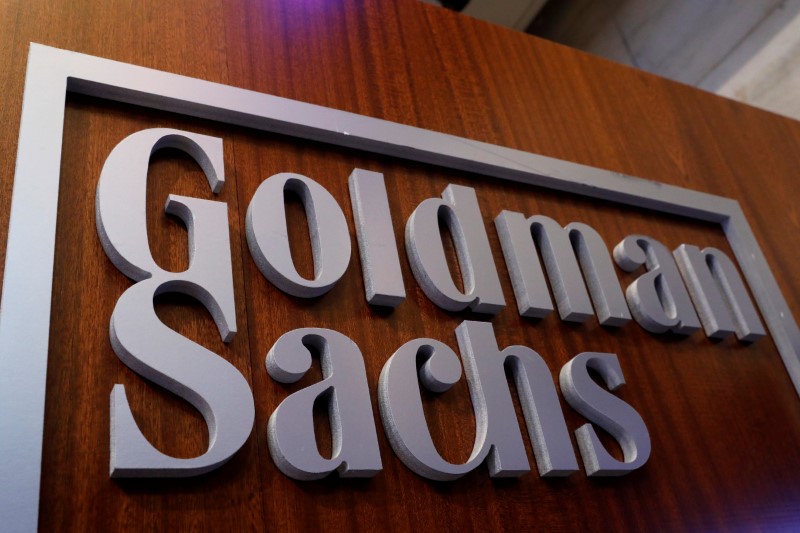By Olivia Oran and Sweta Singh
(Reuters) - Goldman Sachs Group (NYSE:GS) Inc's management team is looking for ways to revive the bank's bond trading business and drum up more revenue from existing clients who have lately become less profitable for the bank.
The Wall Street bank on Tuesday reported a 40 percent slump in second-quarter bond trading revenue, worse than many analysts had expected, and posted the weakest commodities results in its history as a public company.
Seven analysts grilled Chief Financial Officer Marty Chavez on a conference call about whether Goldman is doing enough to turn the business around.
"Everyone in our FICC business is intently focused on this topic, and at a granular, molecular level, working on it – as are all of us in the leadership team," he said, using an acronym for fixed income, currency and commodities trading.
The business delivered $1.2 billion in revenue, the weakest figure since the fourth quarter of 2015.
Goldman's trading rout was deeper than the broad weakness that has plagued Wall Street due to historically low volatility. Citigroup Inc (NYSE:C), Bank of America Corp (NYSE:BAC) and JPMorgan Chase & Co (NYSE:JPM) detailed bond trading declines of 6 percent to 19 percent.
Morgan Stanley will report results on Wednesday.
Goldman's shares fell 2.5 percent even though it managed to beat analysts' overall profit forecasts.
The stock has been the worst performing among shares of big U.S. banks, losing 4.3 percent this year through Monday's close, compared with a 6.7 percent rise in the S&P 500 Financial Index.
Goldman had declines in most areas of bond trading, including interest rate and currencies, but commodities trading was the worst, Chavez said. The bank does not break out numbers for each product, but Chavez said commodities had its worst performance out of the 73 quarters in which Goldman has publicly reported earnings.
Many of Goldman's clients are active asset managers, like hedge funds, that have broadly been struggling to post attractive returns and keep investors from moving to passive vehicles like index funds and exchange-traded funds. Those clients been trading less, and therefore delivering less revenue to Goldman Sachs.
The bank does not have as many corporate clients in trading as bigger rivals that lend to big business and handle their hedges.
Goldman has also historically been weighted more toward derivatives and commodities than other banks, and both areas were weak during the second quarter, Chavez said.
Oil prices traded in a narrow range of $44 to $58 per barrel in the first half of 2017, in steep contrast with the first half of 2016 when they fluctuated between $27 and $50 per barrel.
Volatility indices have also hit multi-year lows in the first half of 2017, meaning traders have fewer options to take directional bets.
To improve bond trading broadly, Goldman is looking for ways to do more business with existing clients, Chavez said.
"This is something all of us are evaluating and making changes and working on, and we're committed to it," he said. "We know we need to do better."
Goldman has remained committed to its J. Aron & Company commodities unit even as peers like Morgan Stanley (NYSE:MS) and Barclays (LON:BARC) PLC have scaled back over the last several years. Several Goldman executives including Chief Executive Officer Lloyd Blankfein, Co-President Harvey Schwartz and CFO Chavez are J. Aron alumni.
Overall, Goldman's net income was nearly flat at $1.6 billion, or $3.95 per share, but beat analysts' average estimate of $3.39 per share, according to Thomson Reuters I/B/E/S.
Revenue fell 0.6 percent to $7.9 billion, as gains in equities trading, investing and lending and asset management helped offset the bond trading slump.
Operating expenses fell about 2 percent to $5.4 billion.
The lender's return on equity, a key measure of how profitably a bank uses shareholder money, was 8.7 percent. Analysts typically like to see a bank produce returns of at least 10 percent.

Goldman, the fifth-largest U.S. bank by assets, has been shifting some focus to more stable businesses like investment management and consumer lending, but those businesses remain small relative to its trading operation.